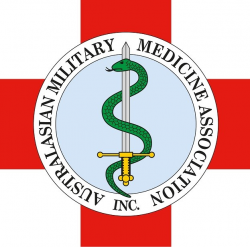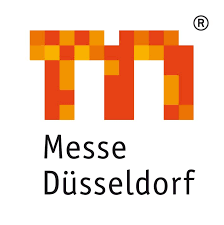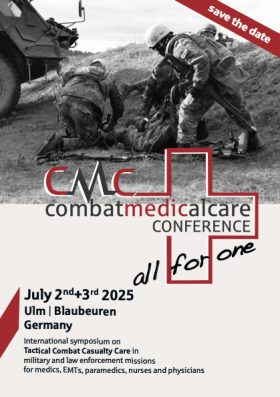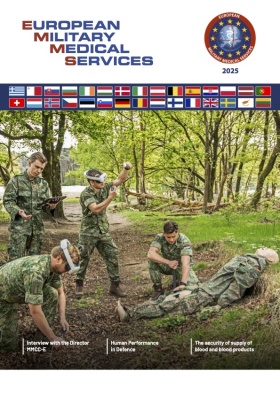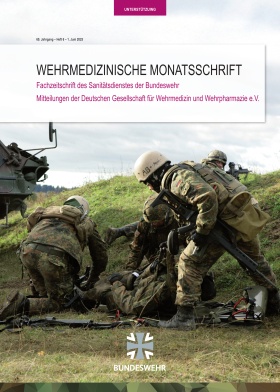
Almanac
United Kingdom of Great Britain and Northern Ireland
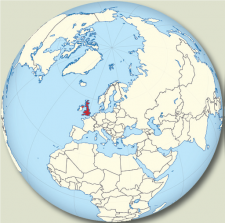
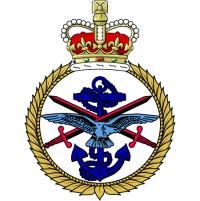
Surgeon General
Phil Mcnee, MD
Major General
Coltman House
Defence Medical Services
Whittington
Lichfield, Staffordshire
WS14 9PY
Pictures and Graphics: Wikimedia Commons
The Defence Medical Services (DMS) in the UK
Defence Medical Services (DMS) Overview
DMS promotes, protects and restores the health of the UK armed forces to ensure that they are ready and medically fit to deploy globally and can fight back to fitness following injury. The DMS is staffed by circa 11,100 service personnel (7,900 regular and 3,200 reserves) and 2,600 civilian personnel and provides healthcare to circa 138100 UK Regular Armed Forces personnel. (Updated 1 May 24)
The DMS comprises of personnel from the Royal Navy Medical Service (RNMS), Army Medical Service (AMS), the Royal Air Force Medical Service (RAFMS) and Headquarters Defence Medical Services (HQ DMS).
Medical, dental, nursing and allied healthcare professionals from both the military and civilian sector work side by side to plan and deliver excellent healthcare services. These include primary healthcare, dental care, rehabilitation, occupational medicine, mental healthcare and specialist medical care.
UK National Health System
The NHS stands for the National Health Service, which provides Government funded health care for UK citizens based on their need for medical care rather than their ability to pay for it.
Responsibility for healthcare has passed from the UK government to the Scottish Government, Welsh Government and Northern Irish Assembly. NHS England, NHS Wales and NHS Scotland lead the NHS in Great Britain. In Northern Ireland, publicly funded health care services are led by Health and Social Care Services (HSC).
Each NHS service and the HSC provide health care services free at the point of delivery, although there are slight differences in what is fully funded by government and what services are available across the different UK countries.
These services are there to improve our health and wellbeing, supporting us to keep mentally and physically well, to get better when we are ill and, when we cannot fully recover, to stay as well as we can to the end of our lives.
The Defence Medical Services (UK)
The DMS is responsible for:
- Advising on the generation, delivery and assurance of medical operational capability for operations and fixed tasks.
- The provide and commission safe, effective and efficient healthcare services for all armed forces personnel.
- Provide policy and advice on health, healthcare and medical operational policy.
- Direct medical research and clinical innovation in Defence.
- Delivery of joint medical training for Defence.
The DMS has:
- Regional Rehabilitation Units (RRUs) across the UK and Germany
- Joint Hospital Group (JHG) Units embedded within NHS Trusts
- The Royal Centre for Defence Medicine (RCDM) in Birmingham
- The Defence Medical Rehabilitation Centre (DMRC) Stanford Hall near Loughborough
- Mental health services are delivered through a network of Departments of Community Mental Health (DCMHs), Mental Health Teams (MHTs), and some additional locations have a dedicated permanent Community Mental Health Nurse.
- Deployable healthcare capability for military and humanitarian operations
Defence Medical Function
Functional Leadership is the means by which Defence ensures coherence and consistency in areas where this is required across Head Office, the Military Commands and Enabling Organisations. Initially known as the Healthcare and Medical Operational Capability Function, this has been simplified to the Defence Medical Function. The Defence Medical Function is responsible and accountable for medical integration across Defence. Advocating for, and bringing coherence to, medical outputs delivered by the Defence Medical Services who operate as part of an Integrated Medical System to promote, protect and restore the health of the UK Armed Forces.
ORGANISATIONAL STRUCTURE
HQ DMS is the strategic headquarters of the DMS and is based at DMS Whittington (DMS(W)) near Lichfield, Staffordshire.
HQ DMS is responsible for enabling Defence Medical Function and its responsibilities on behalf of Defence. It provides an occupationally focused primary healthcare service, encompassing primary medical and dental care, occupational health, public health, force preparation, travel medicine, mental health and rehabilitation, and selected outsourced services. Secondary healthcare is provided by the NHS with HQ DMS input to ensure it meets specific defence requirements. The HQ DMS is also responsible for the delivery of Joint Medical Training through the Defence Medical Academy.
Defence Functional Leadership of the Defence Medical Function:
Defence’s medical capabilities lie at the heart of the moral component of fighting power. Healthcare and Medical Operational Capability (H&MOC) forms one of 15 Functions across Defence. The purpose of a Function is to provide leadership and coherence to activities that transcend organisational boundaries to enable the MOD to operate effectively and efficiently and deliver Government’s requirements.
The Functional Owner (3*) for the Defence Medical Function is the Director General Defence Medical Services who is responsible for functional coherence across the whole of the Defence enterprise, and delivery of the Defence Medical Functional Leadership strategy on behalf of the Ministry of Defence.
The Functional Leader (2*) is the Surgeon General (SG). SG is responsible for delivery and coherence of Defence medical policy and medical operational capability.
The Head of Profession (2*) is Director Medical Personnel & Training (DMP&T). Dir MP&T works in partnership with the 1* single Service Heads of Profession for Healthcare and Medical to ensure DMS' people capability is supported and developed. This includes developing and maintaining Healthcare and Medical skills for the Pan Defence Skills Framework (PDSF), developing and supporting career pathways, strategic workforce planning, professional leadership and standards, promoting learning, development and talent management for all in the Profession.
The Head of Profession (2*) Director Defence Healthcare (DHC). DHC is responsible for ensuring all entitled MOD personnel have access to safe, effective and efficient healthcare in the Firm Base in UK and oversees to meet their clinical needs and the requirements of the employer.
The Defence Medical Function is responsible to Defence for:
- Delivering a comprehensive healthcare system that provides the appropriate timely healthcare to Service and other entitled people.
- Setting the overall direction on all clinical matters relating to the practice of military medicine.
- Setting the joint medical training requirements for Defence, to build and maintain the medical cadre.
- Providing and cohering deployable medical operational capability.
- Developing the science of military medicine to develop approaches and treatments that will best counter threats to the health and wellbeing of Service personnel.
- Setting and auditing the professional performance of all military medical personnel.
- Setting clinical and medical policies and standards, and auditing compliance by military organizations across Defence.
- Setting clinical and medical policies and standards, and auditing compliance by military organizations across Defence.
- Ensuring coherence of health plans between Defence and the NHS.
- Defining the boundaries and processes, in consultation with Top-Level Budget Holders, together with the organisational structures and composition of Forces, and the standards and quality needed, to deliver advice on health policy, healthcare and medical operational capability.
- Accountable to the 4* Defence Medical Services Board that provides strategic direction and guidance to the DMS.
The Defence Medical Functional Strategy
The Functional Strategy provides a clear vision of how the Defence Medical Function will establish a more integrated Defence Medical Services which provides military healthcare at the forefront of innovation. It outlines the core DMS values of being collaborative, compassionate and inquisitive which all contribute to the unifying purpose of caring for Armed Forces personnel, ensuring they are fit to fight and can fight back to fitness. It also defines four strategic outcomes for the DMS which are:
- An engaged, skilled and sustainable workforce.
- A capable and agile integrated medical system.
- Defence’s health and employability maximised.
- An exemplar, learning organisation.
Overview and linkage between the DMS and single Services
The Royal Naval Medical Services (RNMS)
The RNMS comprises of healthcare professionals drawn from a number of medical specialisations who work across the UK and overseas, delivering global operational outputs, employed principally within RN TLB and UKStratCom.
The RN Medical Function supports all components of the Navy Command Operating Model (NCOM) and is a critical enabler for the RN and Defence. The RNMS deliver interdisciplinary medical support to a Global Navy for a Global Britain, ensuring that suitably qualified, trained and equipped personnel deliver safe and effective, quality assured, costeffective and environmentally conscious deployed healthcare to our patients, articulating the medical and health risk to Command and ensuring medical input to Naval capability development. Using robust medical and scientific evidence, we support the development, implementation and monitoring of health and wellbeing strategies and plans, and provide operational healthcare, policy and advice to maximise fitness for role.
The RNMS delivers healthcare to deployed service persons in the land and maritime environment, including surface and subsurface assets. Providing primary care and prehospital care including Damage Control Surgery (DCS) and Damage Control Resuscitation (DCR). Moreover, deployed hospital care is delivered in the maritime and littoral environments by Maritime Deployed Hospital Group (MDHG) and Commando Forward Surgical Group (CFSG) respectively.
The RNMS is headed by the Head of Navy Healthcare within the People and Training 2* Directorate. They are responsible for providing medical advice to the Naval Executive Board (NEC) and facilitate delivery of medical operations in support of the Royal Navy and wider defence operational outputs.
The Army Medical Services (AMS)
The Army Medical Service (AMS) provides Army medical and veterinary policy, operational capability, healthcare advice and assurance, to enhance and sustain the operational effectiveness of the Army. Army operational healthcare is integrated within the Army’s organisational structure, regular Army medical regiments and regular and reserve multi-role medical regiments provide coordinated operational forward of hospital and hospital capabilities.
The AMS is made up of the following:
·Royal Army Medical Corps
·Royal Army Veterinary Corps
·Royal Army Dental Corps
·Queen Alexandra’s Army Nursing Corps
The Royal Air Force Medical Services (RAFMS)
The Royal Air Force Medical Service (RAFMS) provides direct medical support to RAF personnel and the wider armed forces. The RAFMS also delivers medical expertise, including policy, training, and Aerospace medicine.
The RAF Centre of Aerospace Medicine (CAM) conducts a wide range of activities in support of air safety. CAM provides Defence with aircrew and aircraft integration, Aerospace medical policy and training, and specialist support through research and medical boards.
Tactical Medical Wing (TMW) delivers the RAFMS operational outputs. These include deployed aeromedical evacuation (AE), primary care, pre-hospital and hospital capabilities and a 24/7/365 strategic AE capability. TMW is supported by two medical Reserve squadrons: No 612 and No 4626.
FIRM BASE HEALTH SYSTEM
The Directorate of Defence Healthcare, lead by 2* Director Defence Healthcare, is responsible for delivery of healthcare to the Defence population, through Defence Primary Healthcare (DPHC) in the Firm Base (UK and overseas permanent bases). In addition, Director Defence Healthcare is responsible for ensuring that entitled personnel gain timely access to NHS secondary healthcare services.
Defence Primary Healthcare (DPHC)
DPHC delivers occupational health based primary healthcare. DPHC’s purpose is to sustainably deliver and commission safe and effective healthcare, which meets the needs of patients and the chain of command. It provides primary healthcare, dentistry, rehabilitation, mental healthcare and occupational health in the UK and overseas to service personnel and, where appropriate, their dependants.
DPHC supports medical force preparation of service personnel deploying on operations and exercises through the provision of health advice, preventative medicine, vaccinations, chemoprophylaxis and medical risk assessments. Responsibility for the day-to-day management of primary healthcare rests with regional teams in the UK and a separate team embedded in HQ DPHC for overseas medical treatment facilities. DPHC facilities are regulated by the Defence Medical Services’ Regulator supported by the Care Quality Commission.
Defence Health Recovery Group (DHRG)
HQ DHRG is a subordinate headquarters to DPHC. The HQ DHRG aim is to best support our patients by delivering fully integrated, safe, effective and efficient occupationally focussed and operationally driven Occupational Health, mental health & rehabilitation care to Defence and its people.
Defence Medical Rehabilitation Centre (DMRC)
Defence Rehabilitation Services. The physical and mental health and wellbeing of our people is a priority within Defence. As part of this, rehabilitation services are provided through a tiered network of facilities across the UK and overseas, which can be split into four main parts; Primary Care Rehabilitation Facilities (PCRFs), 'Referred-to' Regional Rehabilitation Units (RRUs), the Defence Medical Rehabilitation Centre (DMRC) Stanford Hall near Loughborough and the Royal Centre for Defence Medicine (RCDM) in Birmingham.
DMRC at Stanford Hall, Loughborough. The Role 4 facility supports and enhances the NHS in the treatment of eligible MoD patients and facilitates their seamless transition into rehabilitation.
Joint Hospital Group (JHG)
JHG provides highly capable secondary healthcare personnel for Operations and Defence activity other than Operations (DAOTO) and delivers Firm Base medical care as part of the operational patient pathway in conjunction with the NHS. Defence secondary healthcare personnel are assigned to carefully selected NHS Trusts. Day-to-day interaction with these Trusts and operational command of military personnel embedded within them is conducted by five JHG regional headquarters (Royal Centre for Defence Medicine (RCDM), JHG North, JHG South, JHG South-East and JHG Southwest). This ensures that our secondary healthcare personnel develop their clinical skills, meeting statutory and professional needs, whilst remaining available to Defence at the required readiness. Military training and experience is maintained through a combination of unit based training, exercises and deployments. The JHG Role 4 element of the Operational Care Pathway is undertaken mainly at RCDM at the Queen Elizabeth Hospital, Birmingham, which also oversees the delivery of clinical support to Operations from the Centres of Defence Pathology, Radiology and the Military Advice Service for Sexual Health and HIV.
Veterans Care
Healthcare Beneficiaries
All health care provision for UK Veterans and their families is delivered by the National Health Service (NHS). Information on the support available can be obtained from Healthcare for the armed forces community - NHS (www.nhs.uk).
DEFENCE MEDICAL DIRECTORATE
Surgeon General (SG) directs, oversees, and shapes the current provision and ongoing development of medical advice to operations; medical policy & doctrine; clinical transformation through medical research & innovation; and development of medical operational capability.
SG is the senior technical adviser on medical matters in Defence and the Chief Medical Officer to both the Secretary of State for Defence and the Chief of Defence Staff; the post and supporting team provide the medical advice within the strategic headquarters of MOD Head Office.
SG leads on Defence Medical Engagement, enabled through national and international clinical and academic networks, regular contact with allied SG
counterparts (bilateral, multilateral) and membership of the NATO committee of Surgeons General.
SG provides the senior clinical leadership to drive continuous clinical quality improvement through collation, analysis and distribution of lessons; the generation of the institution’s clinical guidelines for operations; and the responsibility for setting and refining the evolving training requirement.
The Directorate comprises 2 main branches - Research and Clinical Innovation, and Medical Operations and Capability.
RESEARCH AND CLINICAL INNOVATION
The Research and Clinical Innovation (RCI) branch of the Defence Medical Directorate is responsible for the innovative development of military medical care through academia, research, clinical policy and equipment capability developments to better prevent, detect and treat illness or injury resulting from operations and improve outcomes in operational healthcare. A diverse programme of research across primary care, secondary care, nursing, rehabilitation and mental health, seeks to develop the quality of patient care for current and anticipated medical requirements in the UK and the deployed environment. The Defence Medical Services innovation hub (JHubMed) seeks to deliver the latest technological solutions into the hands of the end user at pace. Alongside this, RCI’s development of strong national and international collaborative links, both military and civilian, are crucial to support future innovation in the healthcare environment. Robust educational ties with the Defence Medical Academy enable new developments, innovations and lessons to be passed onto Defence clinicians and support staff, directly enhancing delivery patient care.
MEDICAL OPERATIONS AND CAPABILITY
Medical Operations and Commitments deliver expert medical and healthcare related analysis, assessment and advice to key stakeholders on UK and Global operations in support of HMG activity as directed by Defence. The function of Joint Medical Capability is to develop, deliver, and assure a safe, effective and affordable Medical Equipment Programme including medical materiel, equipment support and medical Chemical, Biological, Radiological and Nuclear (CBRN) Countermeasures to address capability risks. This is to maximise fighting power and support an effective Operational Patient Care Pathway (OPCP) within all operating environments (Land, Sea, Air and CBRN).This is delivered through MOD's commercial delivery partner, Team Leidos (for med) and DES CBRN delivery team (CBRN). Alongside this, Jt Med Cap develop Defence Medical Services (DMS) Operational Applied Concepts (Joint User), and a capability development function.
OPERATIONAL CAPABILITIES
Deployed Hospital Care
Deployed hospital care is delivered on a joint basis, with each Service providing trained and equipped personnel for the deployment. The aim is to return the sick and injured to duty as quickly as possible. The intent is to provide a seamless continuum of consultant-led (where possible) specialist care encompassing preventive medicine, pre-hospital emergency care, primary and secondary care (including dental), imaging and diagnostics, and medical resupply and evacuation.
Patients requiring care beyond the capabilities of deployed medical treatment facilities are evacuated to the UK, usually to the Royal Centre Defence Medicine (RCDM) at the Queen Elizabeth Hospital Birmingham. Established in 2001, RCDM’s primary role is the focal point for the military reception of operational casualties, providing the ‘front door’ component of the Role 4 aspect of the operational patient care pathway.
Does the military have any standing domestic and international tasks or operations?
The DMS holds several capabilities at different levels of readiness; these are designed to provide medical support to wider UK MOD force packages that are held ready to respond to a range of contingencies worldwide.
The tables below outline some of the standing tasks or operations with a DMS support component:
Standing Domestic Tasks / Operations | |
Military Assistance to the Civil Authority | Support to UK Counter-Terrorism operations. |
Defence Primary Healthcare (DPHC) – providing primary health care within the UK to entitles personnel and service families. |
|
Support to Defence of the UK Homeland. |
|
Standing International Tasks / Operations | |
Maritime High Readiness capabilities: Role 1 and Role 2 medical capabilities held at high readiness. |
|
Land High Readiness capabilities: Role 1 and Role 2 medical capabilities held at high readiness. |
|
Air High Readiness capabilities: Role 1 and AEROMED medical capabilities held at high readiness. |
|
Describe how innovations or lessons from the experience of providing military medical support on operations.
Aligned with the wider Defence Organisational Learning (OL) system, Defence Medical Services Organisational Learning (DMS OL) enables the medical planning and healthcare deliverer to learn efficiently from the medics’ experience during operations, exercises and business as usual. It enables the provision of validated justifications for amending the existing way of healthcare delivery and improving its performance during an ongoing operation and for the parallel and subsequent operations. This requires the medical lessons identified to be meaningful and for them to be brought to the attention of the appropriate authority who are able and responsible for dealing with them. It also requires the chain of command to have a clear understanding of how to prioritise lessons and how to staff them, evolving them into a lesson learned and implementing resilient change.
MILITARY MEDICAL PERSONNEL
2* Led Directorate of Medical Personnel and Training (DMP&T)
DMP&T is responsible for DMS workforce planning, command of medical training and placement of DMS personnel into the NHS. It provides a balanced, qualified, experienced, and motivated workforce that enables HQ DMS to support the operational needs of Defence. This is achieved through high-quality clinical placements to develop clinical competency in support of operations and the efficient force generation of medical capability. In parallel, it delivers, assesses, and innovates medical training and education through courses delivered on-site and a system of external training.
Military Medical Recruitment
Initial recruitment is conducted by the service an individual joins however, the DMS works closely with the recruitment teams to ensure a vast range of recruitment routes are utilised to meet the workforce demands. These include internal training pathways and the recruitment of qualified nurses, medics and allied healthcare professionals, and the external recruitment of medical and dental university cadets through to fully qualified hospital consultants and general practitioners. Terms and conditions of Service can be adapted by Unified Career Management to reflect the qualifications and experience of professional healthcare recruits to ensure the recruitment offer is attractive. As per the rest of the Ministry of Defence, recruitment is subject to various nationality and security considerations.
Individual Education and Training
The largest majority of DMS clinical education for both OF and OR cadres is sourced through civilian healthcare education providers. This includes entry level qualifications such as bachelor’s degrees and training for specialised roles for nurses and doctors. The Foundation Medic training program and Healthcare Assistant training program are delivered through the DMA.
Postgraduate Education and Advanced Training
Postgraduate education is available for commissioned and non-commissioned clinical cadres through single Service sponsorship. Education opportunities are sourced from UK and international universities and educational institutions alongside placements within the NHS and military settings. The Defence Medical Academy co-ordinates and delivers military focussed clinical training to support operational capability.
MILITARY MEDICAL TRAINING
Defence Medical Academy (DMA)
The DMA develops, delivers, assures and innovates military medical education and training. It is the home for delivery of initial medical training and the coordinating institution for training delivered externally.
The Service Commands have their own bespoke medical training and research institutions aligned to their discipline. These include the Institute for Naval Medicine (INM), Army Medical Services Training Centre, the Centre for Aviation Medicine (CAM) and Tactical Medical Wing (TMW).
How are basic military skills and medical specialist training delivered?
DMS personnel complete their own Service’s basic training at their respective initial training establishment where they are taught basic military skills aligned to service (RN, RM, Army or RAF). This training will include fieldcraft, first aid, weapons handling etc. Military medical training is undertaken in a variety of setting including DMA where courses such as BATLS and BCDT build on this foundation.
Is there a mandatory individual training in military skills such as weapon handling? CBRN protection and first aid?
The individual Service Commands are responsible for ensuring personnel arriving for training at the DMA are qualified to the required level regarding WH, CBRN, first aid and physical fitness. Students on longer courses at the DMA can requalify during their training as competency expires.
Simulation Training
The DMS does not have a dedicated medical simulation facility at present. Simulation is utilised at a local level by DMA, INM, CAM and TMW to increase fidelity of training delivered. External clinical educational providers utilise simulation as part of their training programs, these include ward-based settings and simulated GP surgeries to enhance practical training prior to placements. Resources have been allocated to understanding how simulation could and should be utilised in training in the future with an aspiration to create a simulation centre at the DMA.
CIVIL-MILITARY RELATIONS
Civil-military medical co-ordination in response to national emergencies
The policy covering Military Aid to Civil Authority (MACA) requests is based on the UK government’s intent to provide an effective response to all types of emergencies and major crises at national level. This means having a pre-planned, integrated and coordinated response from the emergency services, civil authorities and, where appropriate, the Ministry of Defence. If there is an emergency or crisis in the UK, local emergency services provide the first response; government departments or civil authorities may then seek to request military assistance as part of their coordinated multi-agency response to augment local responders. The contribution of Defence reinforces national resilience through effectively providing military capacity, capability, and resources, to assist in the planning, response and recovery for a wide range of disruptive events. Defence maintains a health and medical capability that in certain circumstances may be able to assist with MACA. Assistance to MACA may be where an aspect of the National Health Service is in crisis and under pressure to meet demand, or where a situation would benefit from specific military medical expertise or equipment and contracted provision cannot be provided due to the urgency of the situation, in line with MACA principles. Examples include providing military personnel to uplift NHS staff, establishing field medical treatment facilities, providing medical teams to operate in hazardous environments or advising on specialist areas such as mass casualty management, disease outbreaks, chemical, biological, radiological and explosive injuries, medical logistics and the provision of care in hostile and austere conditions
Civil-military medical co-ordination as part of the military contribution to humanitarian and disaster assistance
Dependent upon geographical location, coherence for Military and UK Government contribution to humanitarian and disaster assistance will come via the Home Office (for National response) as a MACA or via the FCDO (for international response) where the terminology Overseas Assistance Request (OAR) is utilised. The military medical coordination is dependent upon a variety of factors dependent upon concurrency of medical commitments, availability of medical assets and often the medical support to these areas is sent as a Force Protection asset for military elements deploying in support of broader aid in the form of Infra and stabilisation operations.
(status: 27th June 2024)
